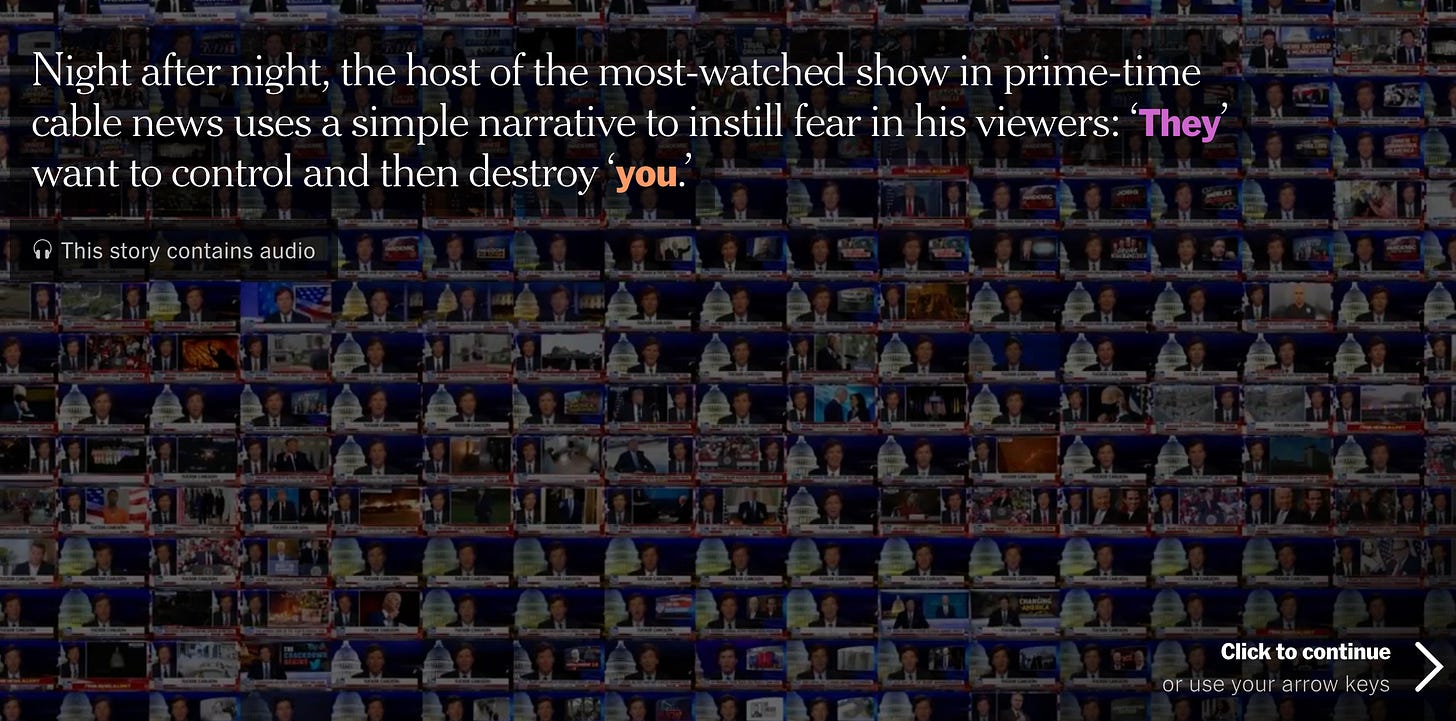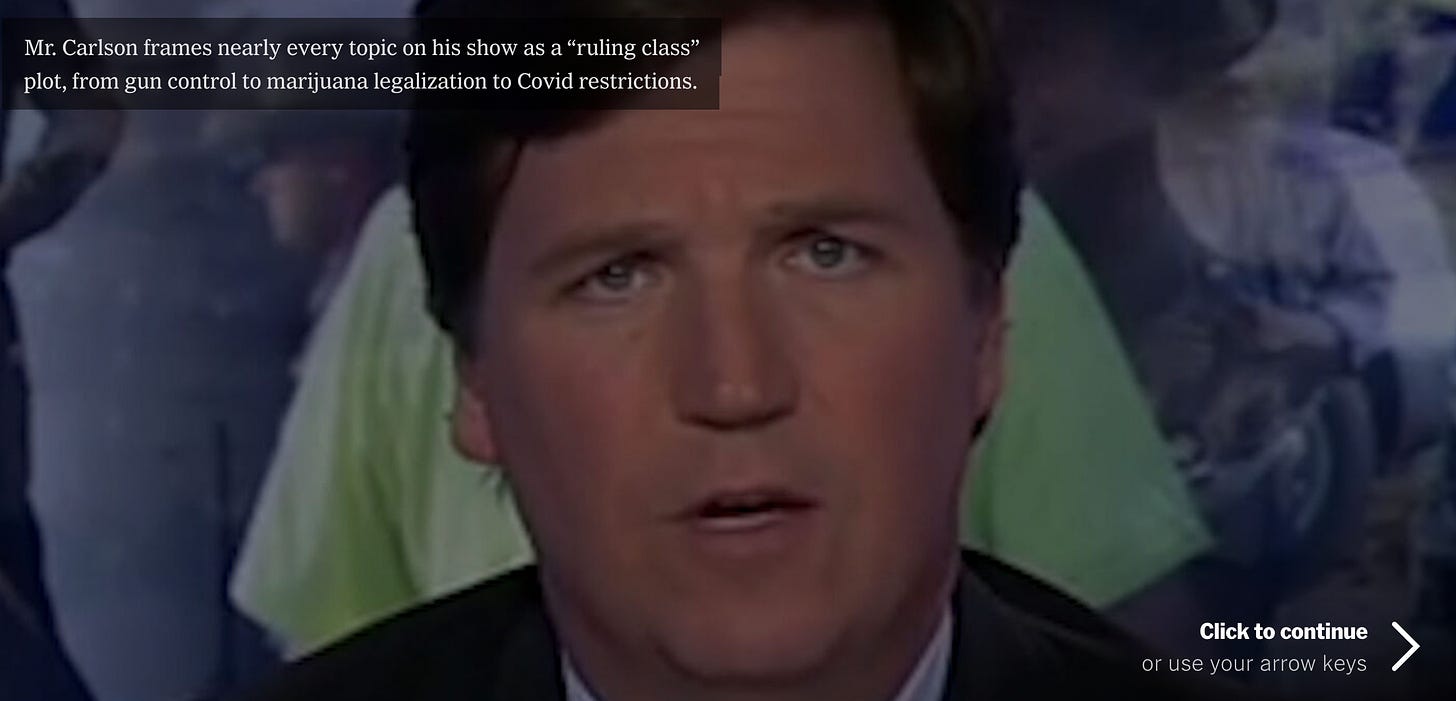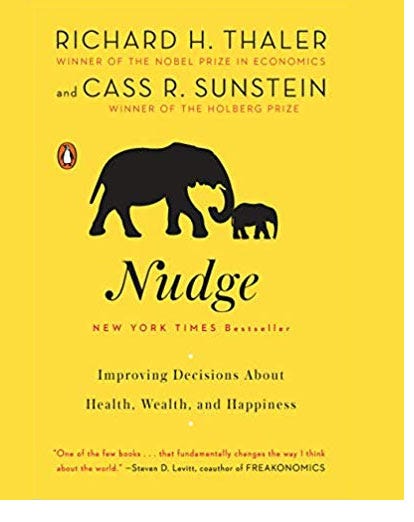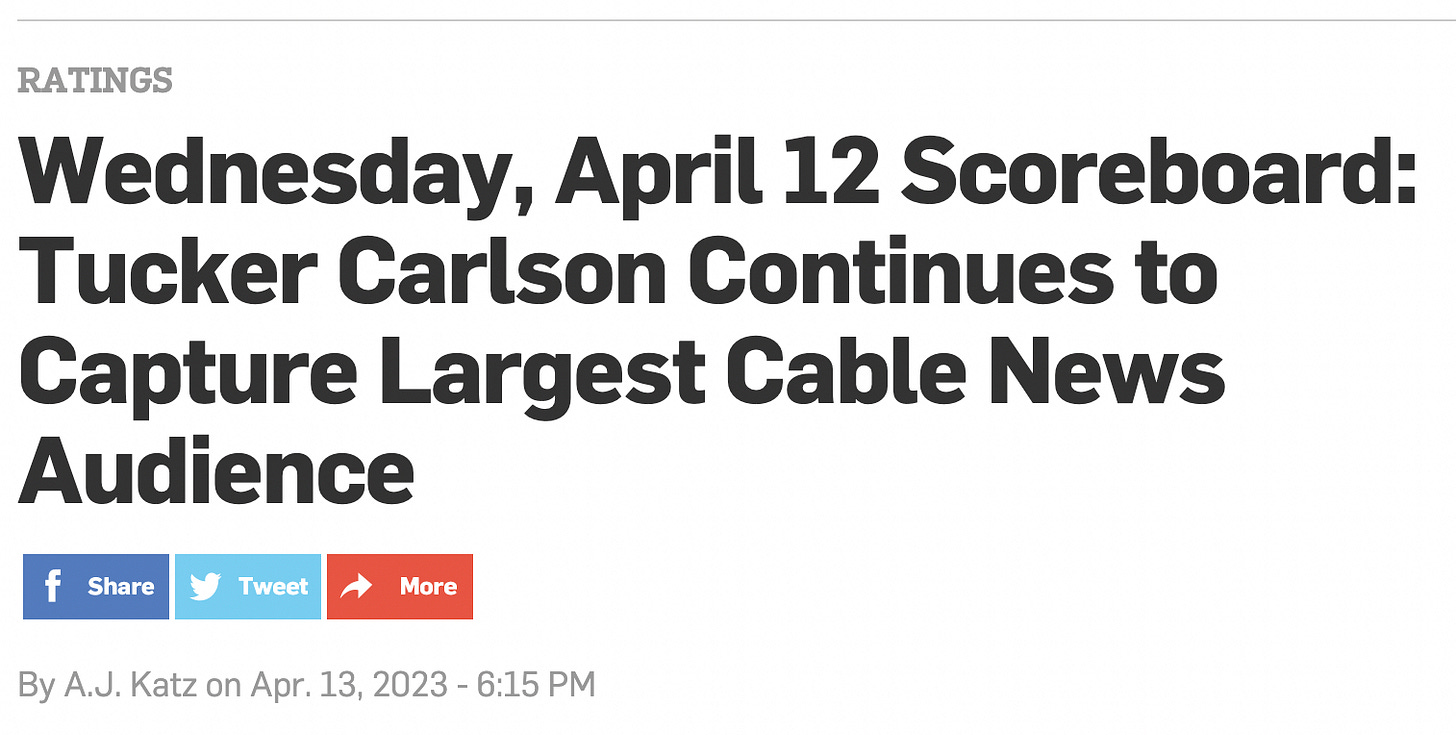Why Cognitive Interventions Fail
scary man doesn't share my ideological priors
You’re anti-something, and you want to convince the pro-somethings to change teams. So you make a presentation on the darkness and danger of the something, and you show it publicly, hoping to get it in front of at least some of the pro-somethings so they change teams. Does it work? Let’s visit an example on its first birthday so we can find out.
I read some of the the Tucker Carlson takedown that the New York Times published last year, but somehow I missed (or just forgot) the interactive multimedia show that accompanied the attack. I just watched it, and if you live west of the Mississippi River, you may have heard me laughing out loud from my dining room table in the Los Angeles suburbs. Go watch. I challenge you to not laugh at it. Even though it’s almost a year old, now, it’s a magnificent illustration of its type. It tells us about a narrative intervention that isn’t working, and can’t work.
The dark claims are these: First, Tucker Carlson says there’s a ruling class. hE aCTuAlLy sAyS tHAt!!!! He says that the ruling class, the people who exercise political power, want to control you.
And that’s it. The dark, evil vision of the monster is that he says there’s a “they,” and they want to control you. Now, of course, no one else ever uses “they” in the public sphere — it’s just a uniquely malevolent Tucker-only political formulation designed to instill fear in your helpless mind.
“They’re coming for all of us.” Weird that this Tucker Carlson tweet is mislabeled as being from a California legislator, because only one person in America uses the threat of “they” in political discussion.
But what do Tucker’s they do? Here’s a sample frame from the NYT’s scary digital presentation:
He claims that the exercise of power has something to do with the exercise of power. Imagine having such a dark and conspiratorial worldview that you think “Covid restrictions” have something to do with a “ruling class.”
The Times doesn’t make the opposite argument: They don’t say that there is no ruling class, or that no one wants to control you. They don’t show why the claim of a power-focused ruling class is dark and evil — they just drop the presumption onto the page and wait for you to gasp. Meanwhile, to draw from an endless list of possible examples, the British journalist Laura Dodsworth writes a book, supported by government documents and interviews with participants, describing the efforts of the SPI-B — the Scientific Pandemic Insights Group on Behaviours — to deliberately and calculatedly inculcate public fear for the purpose of controlling behaviors. Sorry, behaviours. That claim was, of course, fully supported by the later leak of government Whatsapp messages discussing plans to “deploy the new variant” and “frighten the pants off” the public to ensure compliance. And a decades-long expert debate examines ways to push people toward expert-preferred choices:
But why is this conspiracy theorist on television trying to convince people that there’s a ruling class that wants to control you?
And so, if you click through that laugh-out-loud funny presentation at the NYT, my bet is that most people respond the way I did: Yeah, and? Tucker Carlson says people in positions of power want to control you — can you believe he would say something that crazy? (If you’re in academia, you just add the DID PUTIN MAKE HIM DO THIS? kicker on the back of the sentence.)
Here’s the outcome, a year after the newspaper of record took dead aim at Tucker Carlson with a brutal series of hit pieces:
Why?
They — look out, he said “they!” — deployed dark-feeling narrative noises, but they didn’t make an argument. They said things, from deep inside a bubble, that they presumed to be chilling and dark: Tucker Carlson says powerful people in a definable ruling class want to control you! And at least 70% of the country shrugged, because no kidding.
There will be more of this. It’ll go on and on: Person X made Claim Y, CAN YOU BELIEVE HE SAID THAT!?!?!? It’s SCARY!
And America will mostly shrug again. And again. An endless series of narrative interventions about extremist conspiracy theories flows into a normative frame, self-neutralizing upon arrival. The tiniest bit of self-awareness would make the academic-media-political uniculture slightly less tedious, but there’s no danger of that self-awareness arriving to join the party. Ohh, it’s gonna be scary, kids.






If you wanted to be insulted a little more, understand that the true purpose of that video was not really to convince you that Tucker Carlson is wrong or evil. It's to convince you that agreeing with Tucker Carlson is somehow a stain on your character and makes *you* wrong and evil.
I love how both the "they" and "you" are in quotes, as if not only is there an amorphous conspiratorial "they," but there's a similarly amorphous and conspiratorial "you," as if to suggest that "you're not one of *those* people, are you?" *blinking eyes in exaggerated innocence*
They aren't trying to convince. They're trying to shame. Lucky for us, shame left this continent a long time ago.
Look, "they" don't want to control you, but it's a good thing that they do -- because you're too dumb to run your own life.